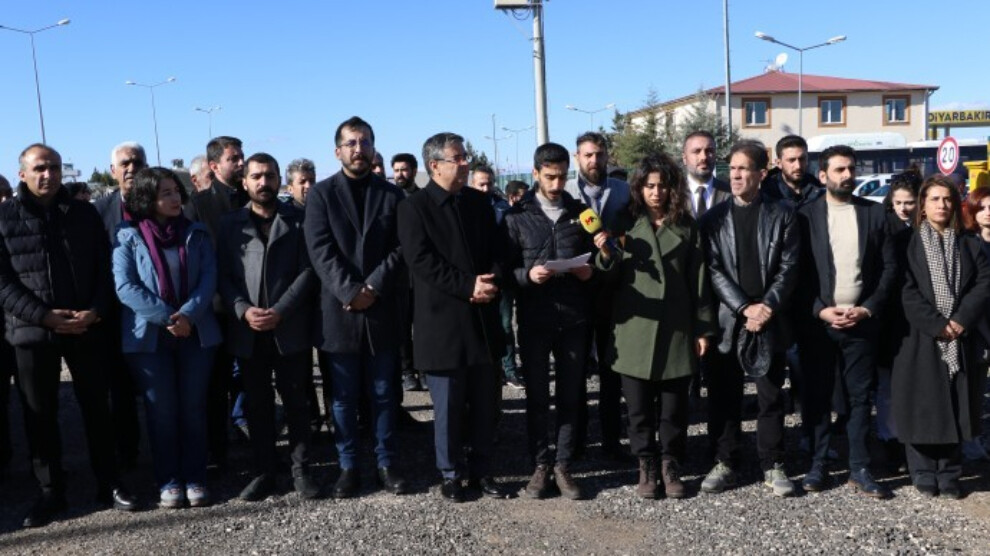Torture increases in jails in Kurdistan
According to a report prepared by human rights organizations, torture has increased in prisons established in Kurdistan, while the release of ill prisoners is prevented.
According to a report prepared by human rights organizations, torture has increased in prisons established in Kurdistan, while the release of ill prisoners is prevented.

As part of the Human Rights Week, Amed Bar Association, Amed Association for Assistance to Prisoners' Families (TUAY-DER), Association of Lawyers for Freedom (ÖHD) and Human Rights Association (IHD) Amed branches presented a report on rights violations in prisons in Kurdistan.
The report was presented in front of Diyarbakır Campus Prison.
The report was read by lawyer Ahmet Güler, Secretary of the Prison Monitoring Commission of the Amed Bar Association, and included the rights violations detected during visits to prisons in November and December.
The report said that in Diyarbakır High Security Prisons No 1 and 2, Type T Prisons No 1 and 3 and Women's Closed Prisons, the Administrative and Observation Boards demanded that prisoners due to be released expressed "remorse".
The report stated that in these prisons, prisoners' hospital transfers were delayed, and that prisoners were threatened with investigation if they sang Kurdish songs. The report also stated that in the same prisons, the number of activities was reduced on the grounds of austerity measures, and even if the number of prisoners was sufficient, they were not allowed to participate in sports activities on the grounds of low numbers.
According to the report, only certain TV channels are allowed in these prisons, while the belongings of prisoners who were previously detained or convicted in the prison are sold to other prisoners as second-hand products.
Reccommendations and requests
The report made the following reccommendations and requests for the elimination of rights violations.
"* Isolation applied to prisoners as a method of torture must be abolished immediately.
* It is necessary to ensure prisoners' right to access to health, to give importance to preventive health services, and to take necessary measures to ensure that ill prisoners benefit from treatment opportunities.
* The treatment of ill prisoners must be carried out urgently and the legal and other obstacles to the release of all ill prisoners, especially the seriously ill ones, must be removed.
* Again, in order to ensure timely treatment of prisoners, hospital referrals should be made without delay and hospital appointments should be made as soon as possible.
* The unlawful practice of handcuffing prisoners during hospital transfers and medical examinations should be immediately abandoned.
* The execution regime legislation and policy in Turkey must be harmonised with international human rights law and prisoners' rights in particular.
* Restrictive decisions taken by the administration regarding publications such as newspapers, books and magazines within the scope of prisoners' right to receive news and communicate with others must be canceled immediately.
* The practice of censoring letters sent by prisoners, especially when in Kurdish, must be immediately abandoned.
* The food served in prisons must be of high nutritional value, in sufficient quantities to feed the prisoners and meet the daily rations.
* Prisoners' access to clean and healthy water is a requirement of the right to health and the right to protect one's material and spiritual existence. For this reason, measures must be taken to prevent water cuts and lack of hot water in prisons.
* The products in the prison canteen must be revised according to market prices and the variety of products in the canteen must be increased."